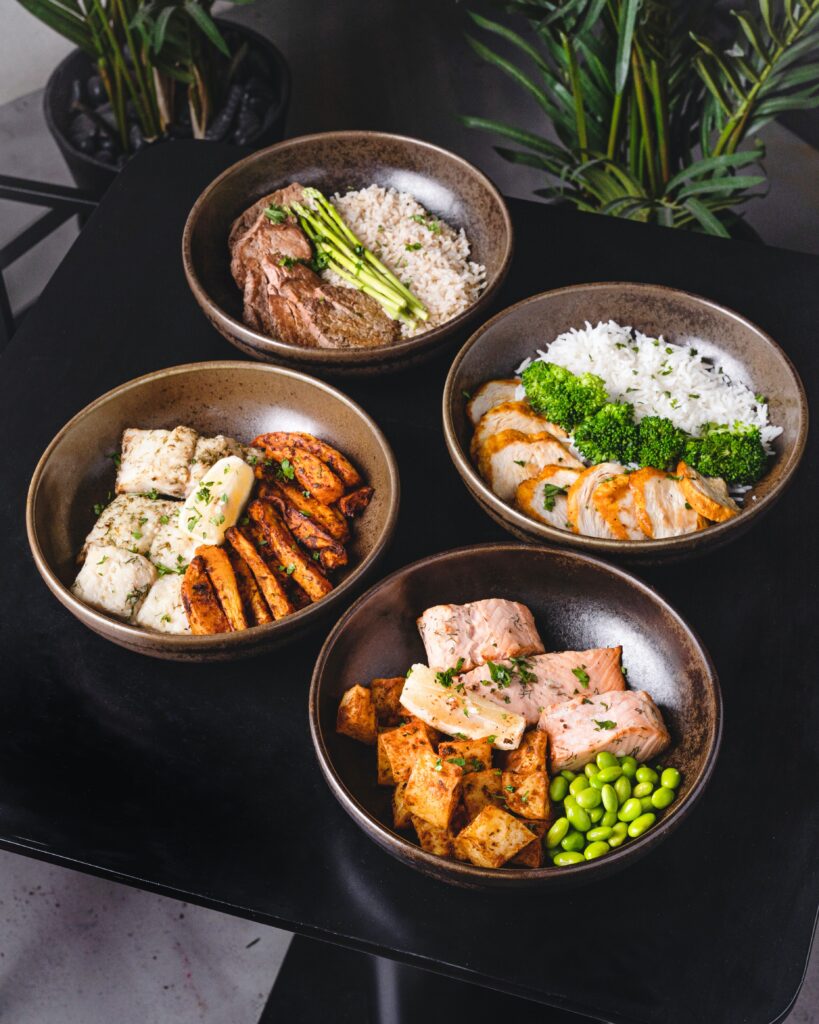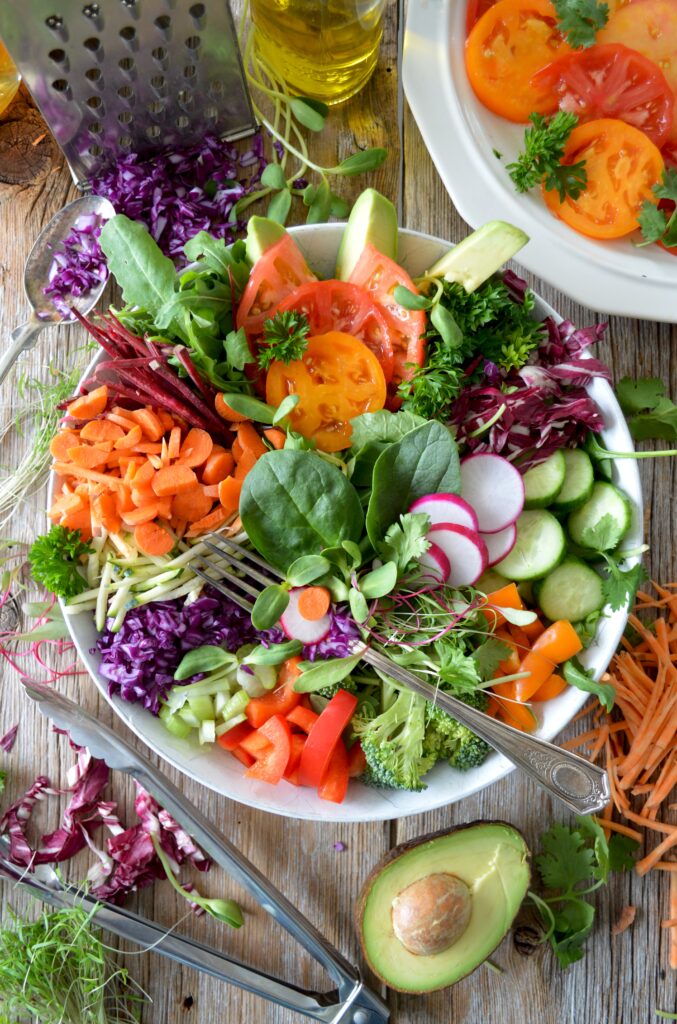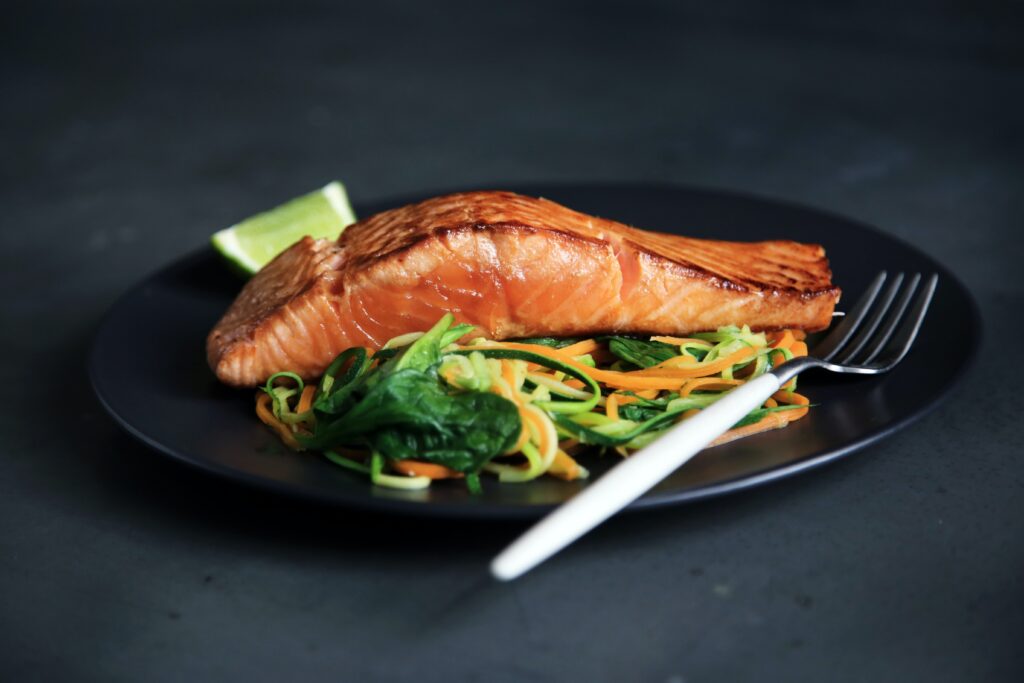Eating healthy
Candida Khan who has dedicated much of her time and energy to promoting healthy lifestyles.
THE impact of the pandemic on our overall wellness is of major concern for dietitian/nutritionist Candida Khan who has dedicated much of her time and energy to promoting healthy lifestyles. Of special interest to Khan is the scourge of chronic non-communicable diseases — a field she specialises in. Chronic diseases include diabetes, heart disease, high cholesterol, high blood pressure and cancers and are directly linked to unhealthy lifestyles. The World Health Organisation estimates that by 2025, chronic diseases will account for 81 per cent of all deaths in T&T. That statistic should be enough to motivate most of us to sit up and take notice.
“People underestimate the importance of nutrition, their beliefs were based on their own upbringing.
They label it as a “family-related disease” but it’s not – you can overcome it, it’s just that no one knows how to do it and the pharmaceutical industry doesn’t want you to know either because they feed off your wellness. But you just have to change your lifestyle and the way you eat.”
Khan is not the first to voice her concerns about the impact of the pandemic on our health and wellness. In a press statement to mark World Obesity Day, Carpha noted that Covid-19 lockdowns have worsened risk factors for weight gain in children. One preliminary study found that children in lockdown reported eating more meals, more ultra-processed foods high in fat, sugar, and salt and had reduced levels of physical activity and increased screen time.
While she was busy fixing healthy snack bars in her kitchen, Khan who is otherwise known as Didi the Trini DN shared with the Express ways in which one can reestablish healthy eating habits. First up for discussion however were the unhealthy habits that have prevailed during the pandemic.
Bad eating habits developed for a number of reasons. It stemmed from our environment, the influences around us and the stress that many were under, said Khan.
“Weight gain is one of the biggest issues I’ve seen coming out of the pandemic, some were not able to cope with stress and resorted to emotional eating,”said Khan.
Imbalances in one’s diet

The dietitian nutritionist laments a lack of knowledge which results in imbalances in one’s diet. She added that in many instances, persons don’t know what a “portion” is, what to eat, how much and how often. Many do not have an idea of their own level of moderation, she added.

Exercise healthy lifestyle
Another misconception revolves around physical activity. Some people sacrifice sleep for the sake of getting in more exercise but Khan says sleep is one of the best ways to lose body fat, if you lack sleep your body will automatically gain fat. While exercise has a lot of benefits — it boosts endorphins and energy levels — it alone will not guarantee weight loss.
“Exercise is supposed to compliment your lifestyle, it is supposed to add to our overall wellness but it shouldn’t be used as a substitute for proper nutrition,” said Khan. “It is really a tiny piece of a much larger puzzle, it will not lead to this big, massive result. Rather it’s about proper nutrition, proper nourishment, learning about your body and what works for you and that is what will get you the results you want.”
misinformation is difficult primarily because some think they know what’s best.
“People underestimate the importance of nutrition, their beliefs were based on their own upbringing.
Once you are around people who don’t understand food and nourishment, they will influence you and you will fall into that trend. And that’s why persons who have diabetic parents become diabetic because they have the same lifestyle and routines.
They label it as a “family-related disease” but it’s not – you can overcome it, it’s just that no one knows how to do it and the pharmaceutical industry doesn’t want you to know either because they feed off your wellness. But you just have to change your lifestyle and the way you eat.”
The outside noise from those who think they know better is just one of the barriers her clients face. It takes about three months to instill good habits, Khan uses that time to clear misconceptions and empower her clients to make good decisions and move in the right direction as it concerns their health.
Rebooting from unhealthy habits is a challenge because most people are resistant to change. Khan recommends taking baby steps. If your goal is to have one fruit every day, try to include your favourite fruit and set daily reminders to have it at a certain time every day.
Once you instill that habit, it will become easier. She also recommends drinking herbal teas which are great for de-stressing and managing blood pressure.
Also, “eat the rainbow”, in other words, try including fruits and vegetables of different colours in your diet. Rebooting involves a lot more; these recommendations are just a start.



Overworking, over-consumption of different calories that causes excessive weight gain, staying up late at night and not being able to manage stress while using food as a coping mechanism are some of the unhealthy habits that were picked up during the pandemic. Khan singled out “emotional eating” which is a habit that is difficult to break because it stems from stress.
The health and wellness influencer has a growing following on social media where she shares tips on healthy, simple meals as well as advice on achieving healthy goals. Khan has written recipe booklets and helped many to reach their goals via Didi’s Nutrition Consultancy.
As vocal as she is about the dangerous impacts of unhealthy lifestyles, many people still fall prey to misinformation. A major part of her job is combating myths and misleading information that are doing more harm than good.
“Some people try diets like the “blood type diet’ and generalise the results. They think that if they react a certain way to certain foods, that others will too. I work with people and correct misinformation which helps them overcome emotional eating and binge eating,”she said.
